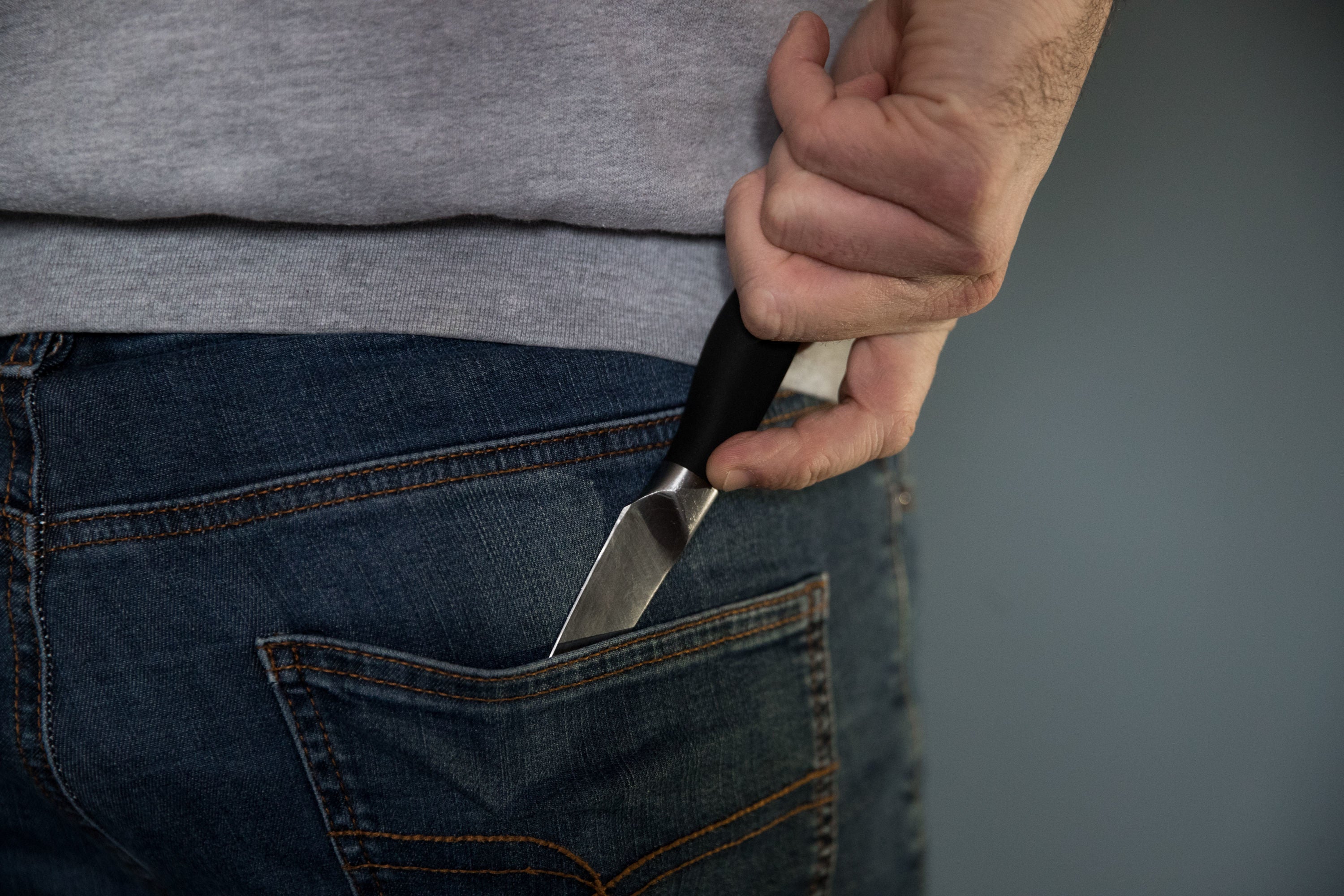Knife crime prevention trial sees no results in first six weeks
No court actions have resulted from the police trial

A police trial aimed at stopping people as young as 12 from carrying knives failed to result in a single court action during its first six weeks, it has emerged.
Knife Crime Prevention Orders (KCPOs) are being piloted by the Metropolitan Police by using the courts to impose restrictions on people they believe are “on the cusp” of violence.
But figures obtained by the PA news agency under Freedom of Information (FOI) laws show only two orders were applied for by the Met during the first six weeks of the trial - and both were turned down by magistrates.
The force said “learning was identified” from its two failed applications, adding that two orders have since been granted, although both were handed out alongside jail terms for knife offences.
The 14-month trial was launched on 7 July this year - amid concern about youth violence in the capital - allowing police to apply to magistrates’ courts for orders on any person they believe is carrying blades, regularly has knives, or has knife-related convictions.
Conditions imposed as part of KCPOs include curfews, restrictions on social media use, and bans on travel outside certain geographical boundaries.
The courts can also call for a range of activities to take place, such as educational courses, sports club referrals, relationship counselling, anger management, and drug rehabilitation, with a prison term of up to two years for any breaches.
Home Secretary Priti Patel said the orders will “crack down on those carrying weapons while at the same time intervening to steer them away from a life of violence”, adding that the scheme will be rolled out across England and Wales if deemed a success.
But in the first six weeks of the trial, Scotland Yard had both its KCPO applications turned down.
One was for a 23-year-old Asian man, the other was for an 18-year-old black man, the FOI revealed. Both had a previous conviction for knife possession.
The Met said it has since successfully applied for two orders - one for an 18-year-old man from Hillingdon, who was given a KCPO in addition to an eight-month prison sentence for knife possession, and one for a 32-year-old man, who was handed a KCPO alongside a 50-week jail term for brandishing two knives in Ealing.
Speaking at the pilot scheme’s launch, its lead, Commander Ade Adelekan, described fears over racial profiling as “a valid question to ask”, and said the force had carried out an equalities impact assessment which will be continually reviewed.
He added: “If this (pilot) really does work then I suggest we need to evaluate this properly as to why it does work, but if it doesn’t work also I think we need to stop it fairly quickly.”
It is understood that Mr Adelekan is no longer in charge of the scheme.
A Met spokesman said: “The Met is 10 weeks into a 14-month pilot and so far there has been one KCPO granted in London.
“As is often the case with new legislation, police and other agencies involved in KCPOs are navigating through new processes and building up knowledge following the initial launch.
“Learning was identified following two unsuccessful applications and allowed us to understand how the courts may interpret the civil orders and adapt to the thresholds required.”
The spokesman said the trial’s effectiveness is being “continuously assessed”, and added: “We are confident that during the remaining trial period we will see more KCPOs granted by the courts, saving lives and making communities safer.”
Policing minister Kit Malthouse, who advocated the introduction of KCPOs, described the trial as “pretty good so far”.
He told PA: “Obviously it’s early days so we’ll see where we go.
“Don’t forget, a Knife Crime Prevention Order can compel them to go on some training course or therapeutic course to try to sort out the problems they’ve got that mean they’re carrying a knife, (and) hopefully get them on to the straight and narrow and into a productive life like the rest of us.”
A spokesman for London Mayor Sadiq Khan said: “While it is early days, the Mayor has been clear that KCPOs alone will not reduce violent crime, and must be part of a much bigger package of measures that include tackling the causes of crime.”
Evaluation, which will be carried out on a daily basis, is being led by the Met’s strategic insight unit, with help from experts at Cambridge University and University College London.
PA
